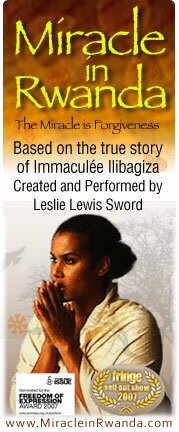One of the most significant aspects of ethical resource usage is respecting intellectual property rights. Each piece of content available online represents the hard work and creativity of its author or organization. When students or researchers fail to attribute sources properly, they undermine the value of intellectual contributions and violate copyright laws. Proper citation not only acknowledges the original creators but also provides readers with the context needed to verify and engage with the information.
Another critical element of ethical academic practices is maintaining integrity by avoiding plagiarism. Plagiarism, whether through deliberate copying or accidental omission of citations, is a breach of academic standards. The abundance of online materials has made it easier to access and replicate information, but it has also increased the risks of unintentional plagiarism. To mitigate this, tools like Paper-checker.com have become invaluable. These platforms help identify potential overlaps with existing content, allowing users to correct issues before submission and ensuring that their work remains original and credible.
In addition to avoiding plagiarism, ethical use of online resources involves critical engagement with the information. The internet is a vast repository of knowledge, but not all of it is reliable. Researchers must evaluate the credibility of their sources, considering factors such as the author’s expertise, the publication’s reputation, and the accuracy of the information. By relying on reputable sources, scholars can ensure that their work is built on a solid foundation of verified knowledge.
Paraphrasing is another key skill in ethical academic writing. While direct quotations are sometimes necessary, paraphrasing allows researchers to express ideas from their sources in their own words. This not only demonstrates understanding but also integrates the information seamlessly into the writer’s argument. However, paraphrased content still requires proper attribution to the original source, emphasizing the importance of thorough and accurate citations.
The ethical use of online resources also involves understanding the concept of fair use. While educational purposes often fall under fair use, this does not grant unrestricted access to all online content. Researchers must respect the terms of use for each resource, ensuring that they do not infringe on copyright laws. This is particularly important in cases where materials are used beyond the scope of personal study, such as in published works or presentations.
Institutions and educators play a vital role in promoting ethical research practices. By incorporating lessons on proper citation techniques and the responsible use of online tools, they can equip students with the knowledge and skills needed to navigate the digital landscape. Workshops, seminars, and resources on academic integrity help create an environment where ethical practices are valued and upheld. Furthermore, institutions can provide access to plagiarism detection tools like Paper-checker.com, ensuring that students have the means to verify the originality of their work.
For researchers, maintaining a clear record of their sources is a practical way to ensure ethical use. Keeping track of consulted materials not only aids in creating accurate bibliographies but also minimizes the risk of omitting citations. This practice fosters transparency and accountability, reinforcing the credibility of the final work.
Another crucial aspect of ethical resource usage is fostering originality. While it is natural to draw inspiration from existing works, researchers must strive to contribute their unique perspectives and ideas. Over-reliance on a single source or extensive copying, even with citations, diminishes the originality of academic work. By engaging critically with multiple sources, researchers can develop nuanced arguments that reflect their independent thinking.
The ethical use of online resources extends beyond individual practices. It is a shared responsibility between students, educators, and institutions to cultivate a culture of respect for intellectual property and academic honesty. Clear academic policies, combined with open discussions about the consequences of unethical behavior, can help address ambiguities and reinforce the importance of these principles.
In conclusion, the ethical use of online resources is fundamental to academic work in the modern era. By respecting intellectual property, avoiding plagiarism, and critically evaluating sources, researchers can uphold the integrity of their work and contribute meaningfully to their fields. Tools like Paper-checker.com provide valuable support in this endeavor, helping ensure that academic work remains original and credible. As the internet continues to evolve, so must our commitment to using its resources responsibly. This not only enhances academic performance but also prepares individuals for ethical and informed participation in a knowledge-driven world.

